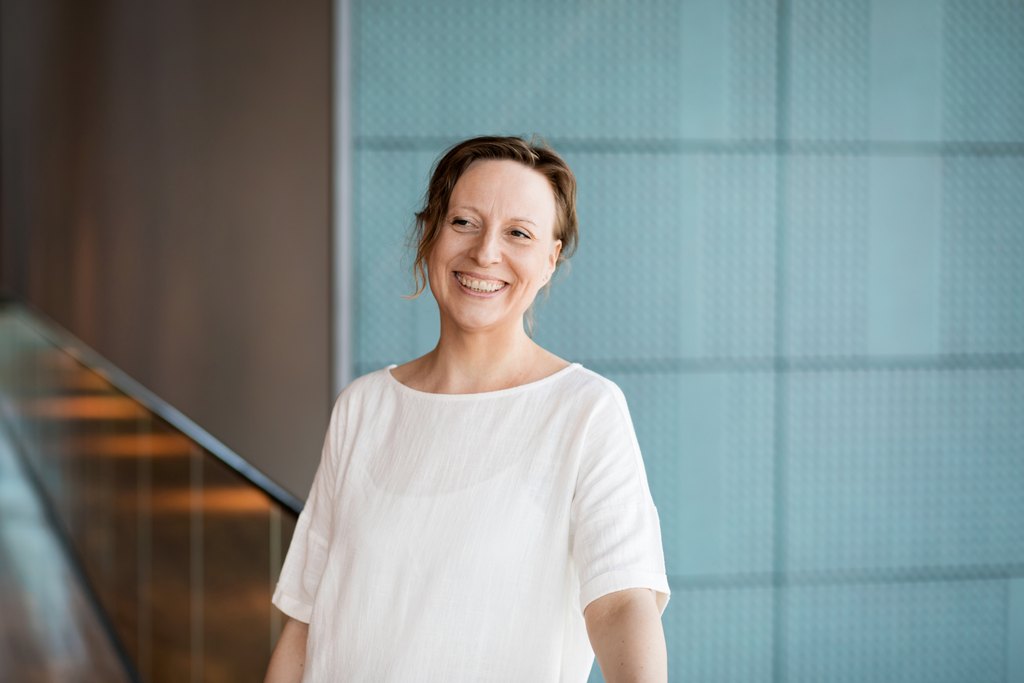Doctoral dissertation: Higher music education can respond to the refugee situation through intercultural music collaboration

Higher education institutions in the field of music have the potential to take an active role in the integration and participation of musicians with a refugee background in the receiving country, a doctoral dissertation by Katja Thomson (D.Mus.) reveals. The inquiry focuses on an ensemble called World In Motion, perceived as a social innovation, which brought music students together with musicians who had arrived in Finland as refugees. The public examination of Thomson’s doctoral dissertation, titled Reciprocal Integration in a Musical Thirdspace: An Ethnographic Study with Refugee Musicians and Higher Music Education Students, was on 7 May 2021.
The refugee surge in 2015 and the subsequent public debate on immigration have brought the need for higher music education to look for new perspectives and operating models for integration and living with difference. In January 2016, Thomson founded the World In Motion ensemble, which was active for eighteen months, involving Sibelius Academy students and Middle Eastern musicians with a refugee background. The ensemble can be considered a social innovation with the aim of addressing the challenges of immigration through musical collaboration. The emerging ensemble practice was built through weekly, open-access workhops at the Caisa Cultural Centre in Helsinki. The ensemble musicians, who all had different musical backgrounds, composed and arranged music collaboratively and performed in public events.
Ensemble activities offer a space for interaction
Thomson got the idea for forming an ensemble after noticing that many of the refugees who had come to Finland were professional musicians or active instrumentalists and singers longing for a shared space for interaction. The participants’ own musical backgrounds and experimentation with new musical ideas were at the centre of the ensemble’s activities.
– We strived for finding shared goals without a shared language. All of us had to look for alternatives for our usual artistic and pedagogical approaches, Thomson notes.
In her doctoral dissertation, Thomson explains how collaborative composing and arranging can create a space for reciprocal integration, negotiation and identity work.
– The sense of togetherness, feeling of safety and openness to new artistic and social possibilities were all highlighted in my research. On the other hand, political conflicts in the Middle East and traumas and feelings of vulnerability that they have caused to refugees were also present in the ensemble collaboration.
Thomson encourages higher music education to take an active role in the intersections of artistic, pedagogical and social dimensions of music and to create musical spaces that enable future musicians and educators to learn skills that they will need in their profession. The doctoral dissertation is part of the ArtsEqual research initiative (2015-2021) coordinated by the University of the Arts Helsinki. It examines how art could increase social equality and wellbeing in Finland of the 2020s if it were understood as a public service. In addition to the doctoral dissertation, some of the research findings have also been reported in a peer-reviewed book chapter.
More information
Katja Thomson
katja.thomson@uniarts.fi
Online event: Public defence of the doctoral dissertation of Katja Thomson
Title of the dissertation: Reciprocal Integration in a Musical Thirdspace: An Ethnographic Study with Refugee Musicians and Higher Music Education Students
Title of the dissertation: Reciprocal Integration in a Musical Thirdspace: An Ethnographic Study with Refugee Musicians and Higher Music Education Students
Opponent: prof. Sidsel Karlsen
Examiners of the dissertation: prof. Sidsel Karlsen, prof. Eva Sæther
Chair: Prof. Heidi Westerlund